‘Alive in Jesus’ Training and Launch: Introducing a New Sabbath School Curriculum
The Trans Pacific Union Mission (TPUM) hosted the "Alive in Jesus Training and Launch" event from May 27 to 30 in the TPUM Conference room. This event introduced the new ‘Alive in Jesus’ Sabbath School curriculum, aimed at empowering those involved in children’s and youth ministries.
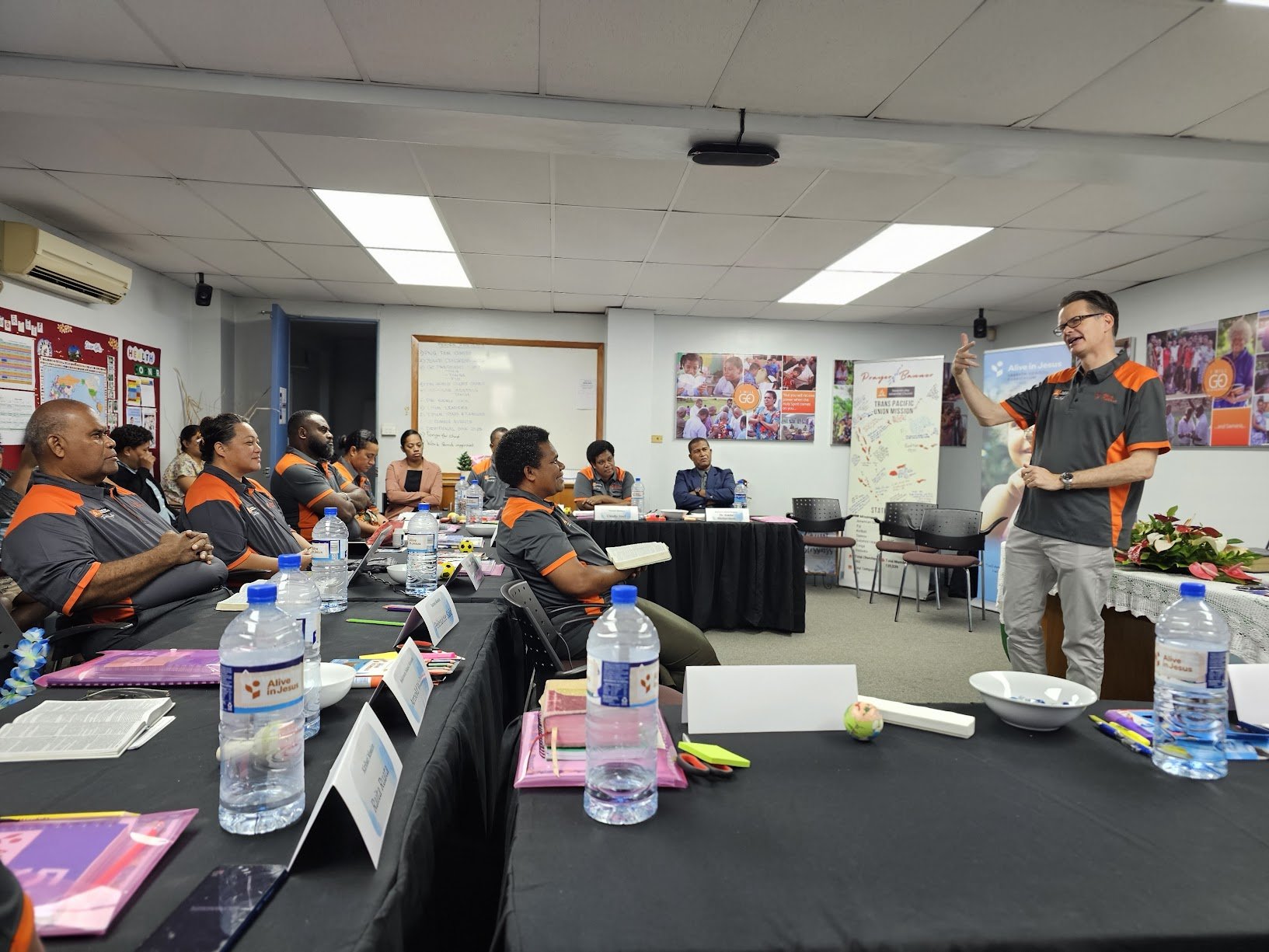
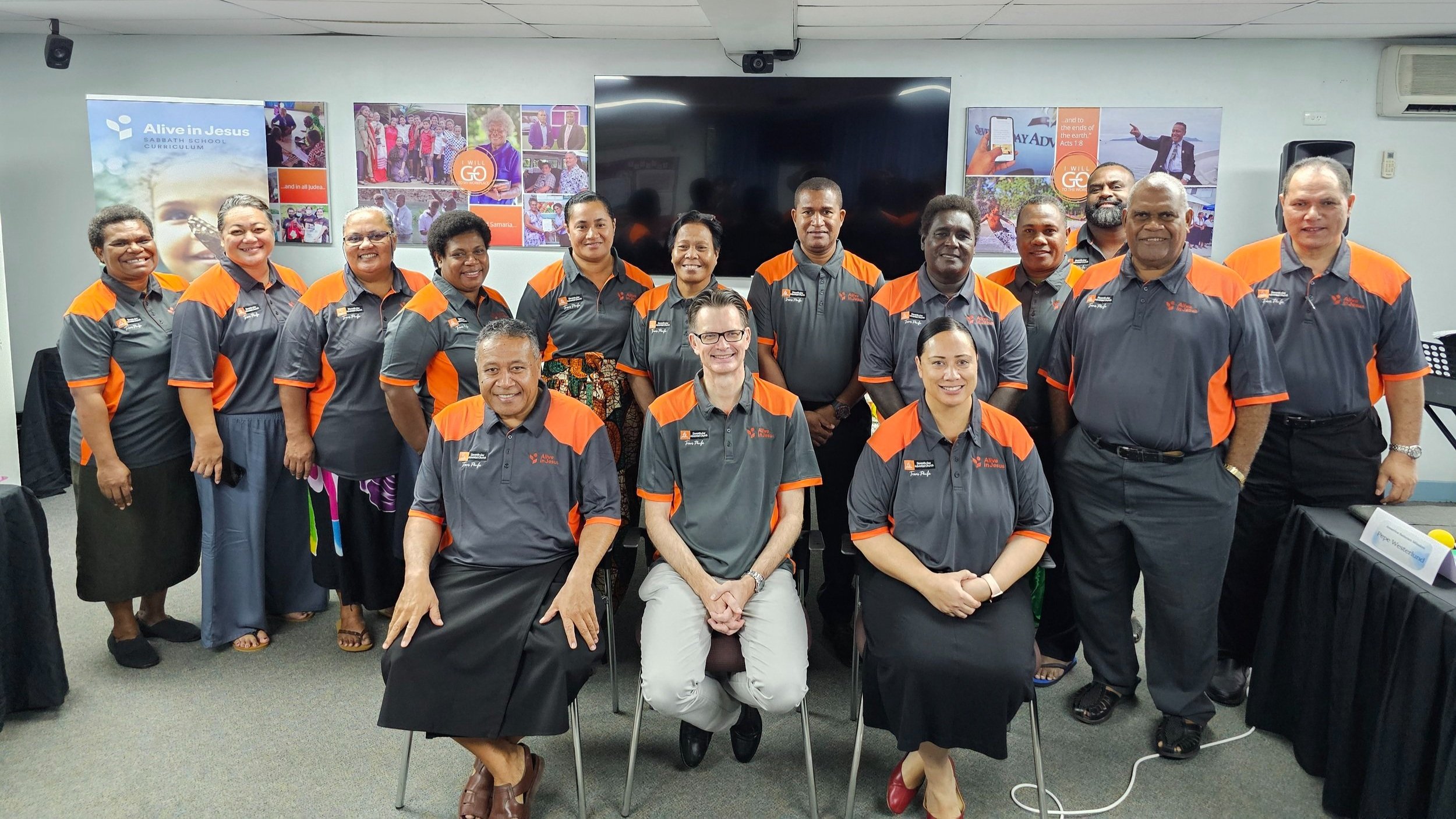
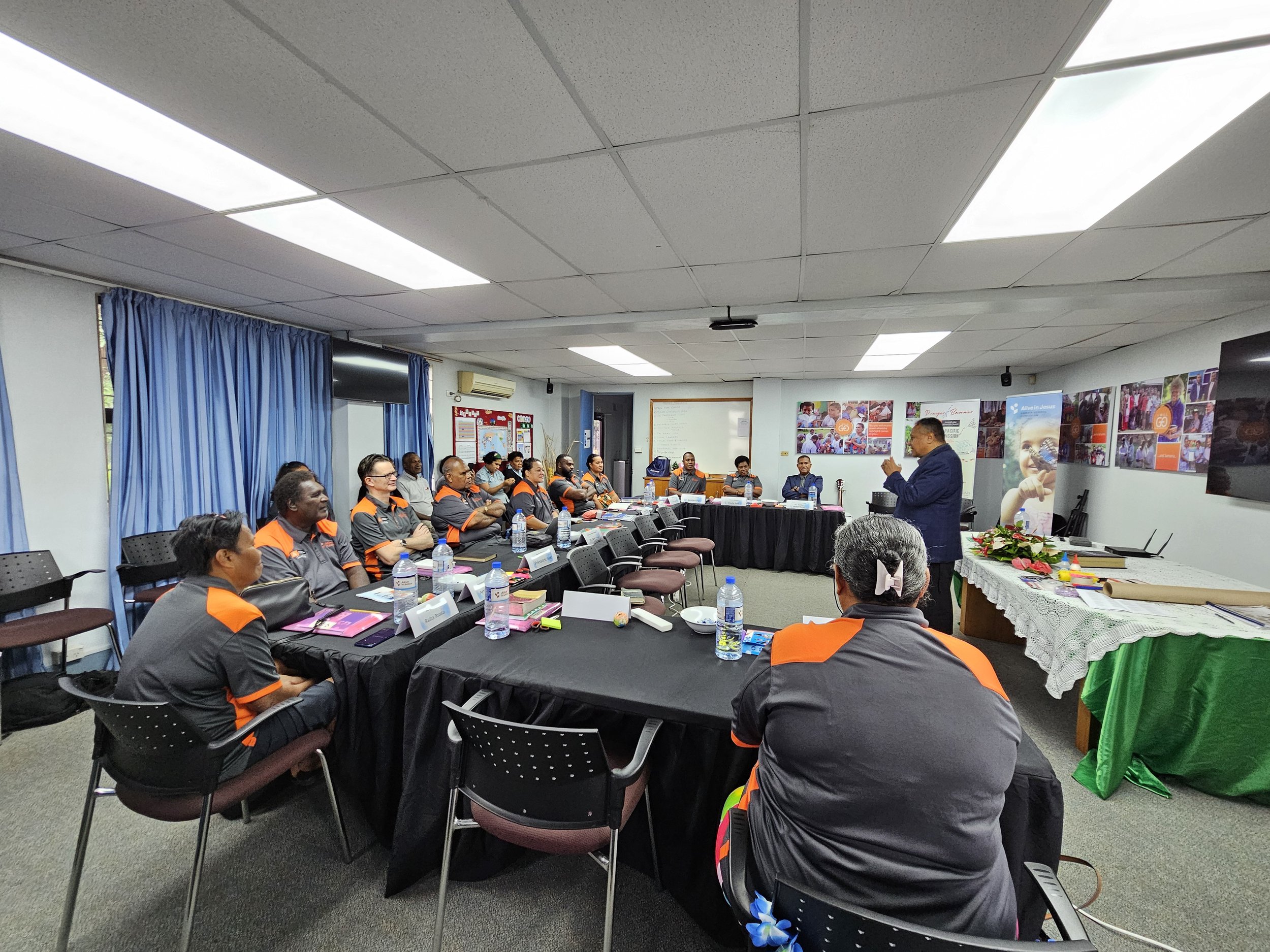
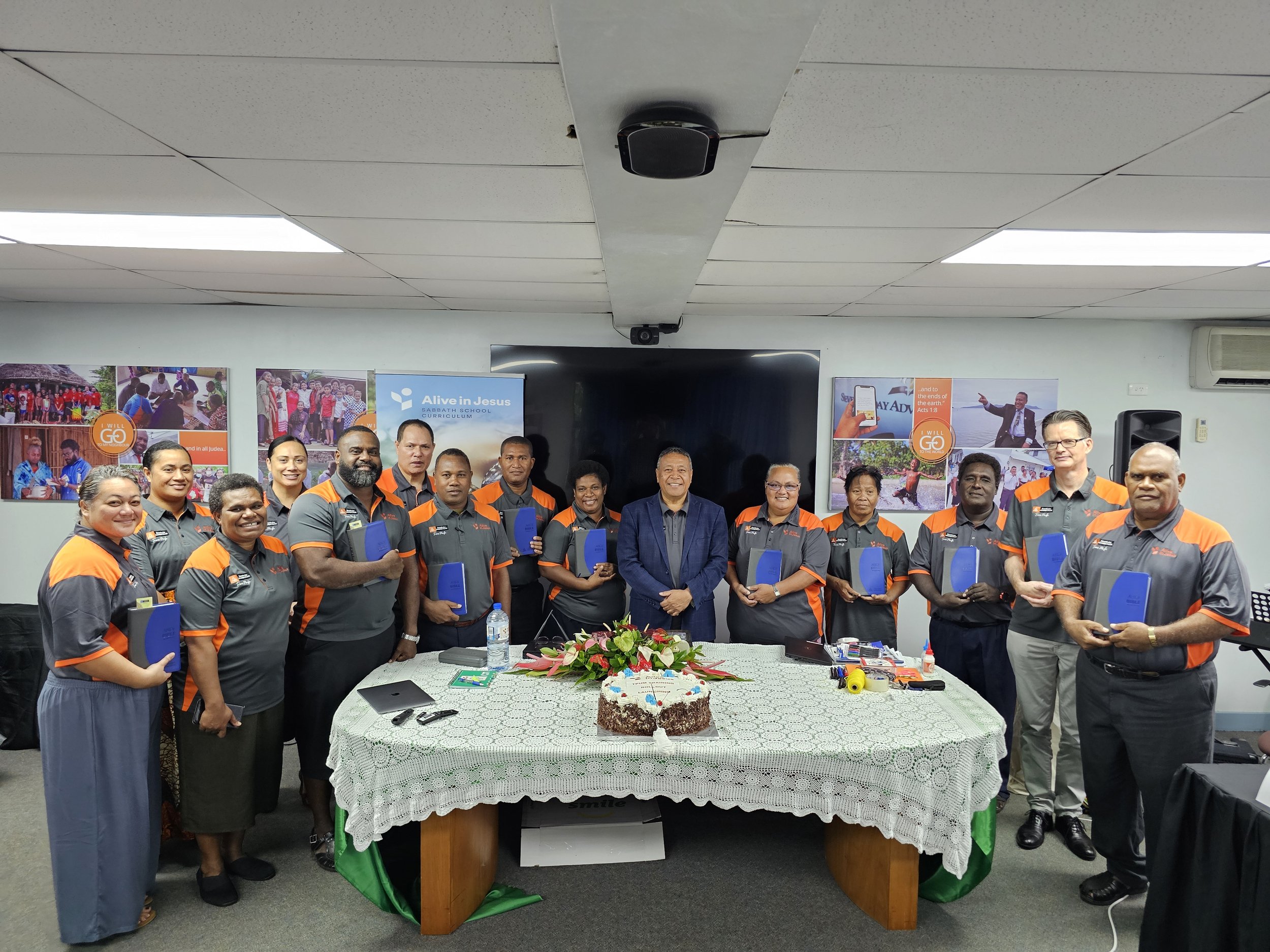
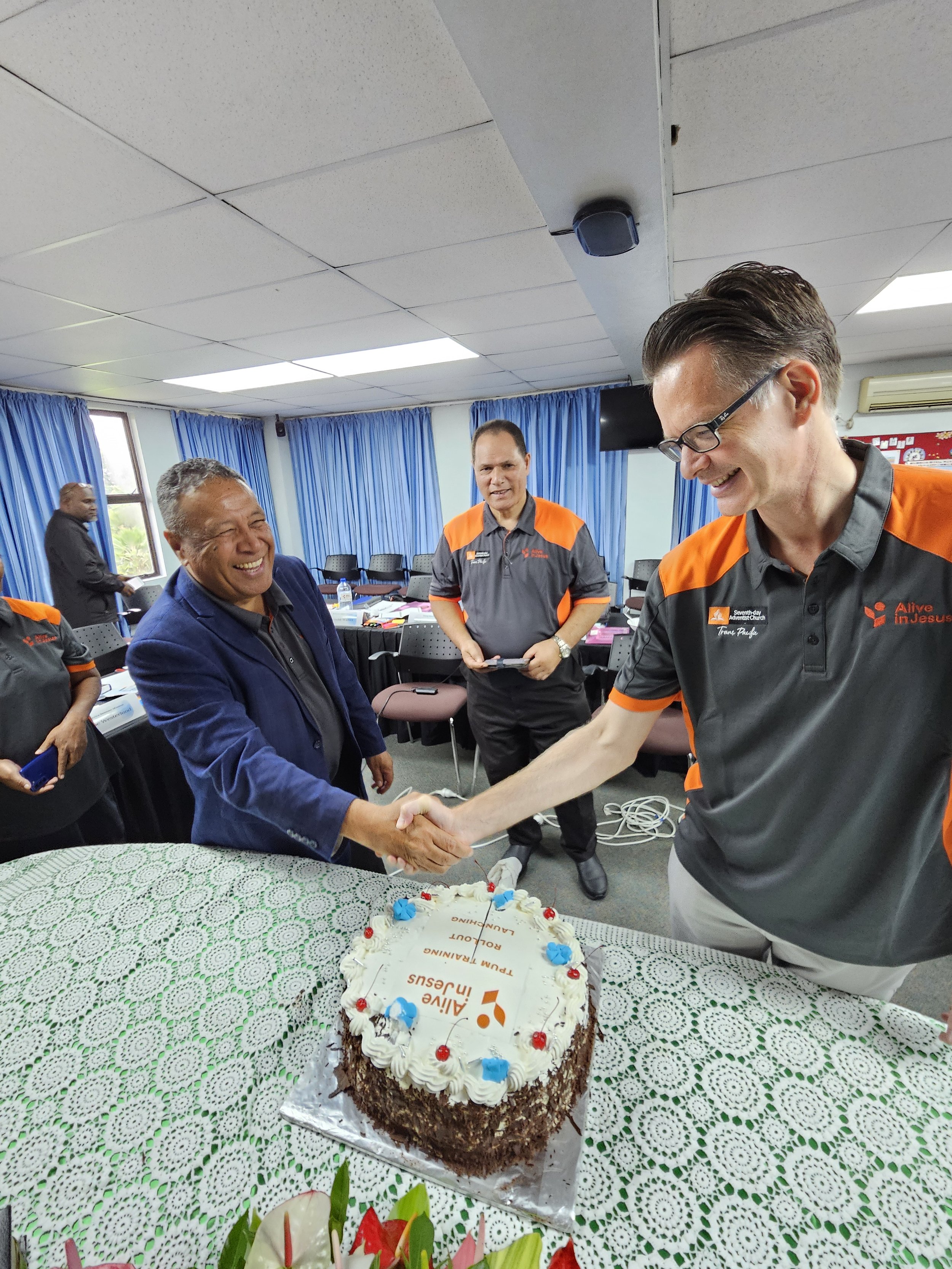

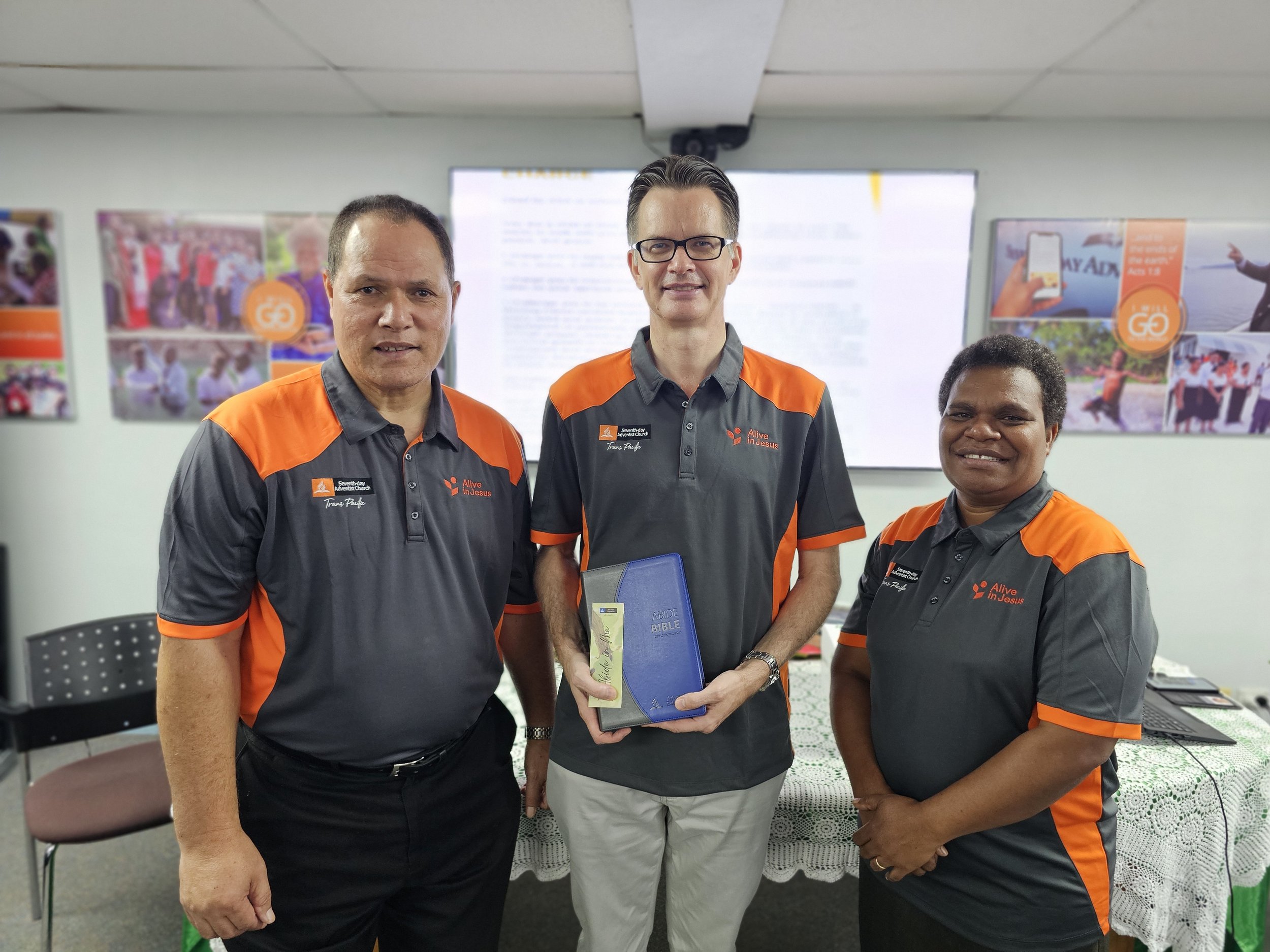
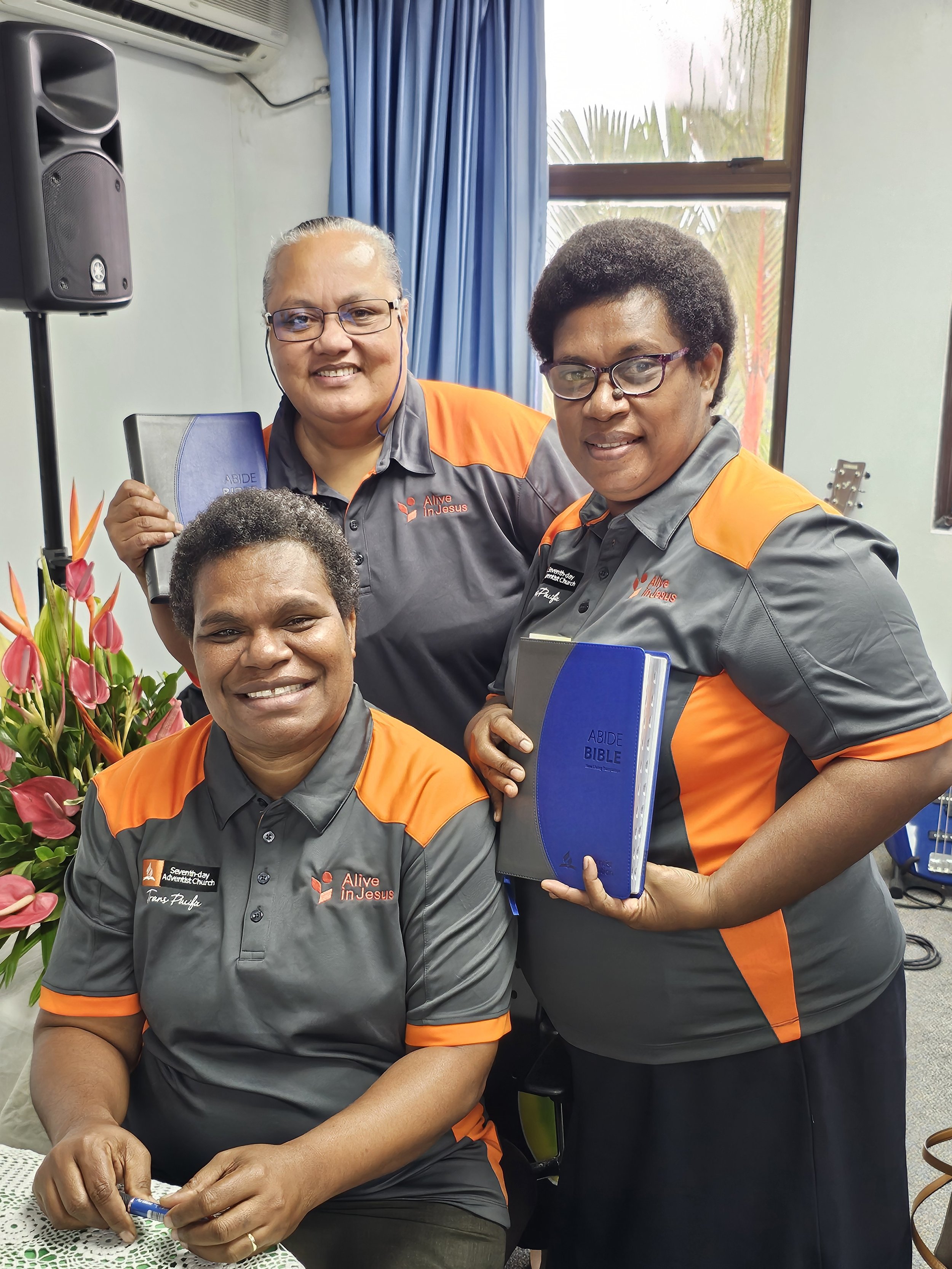
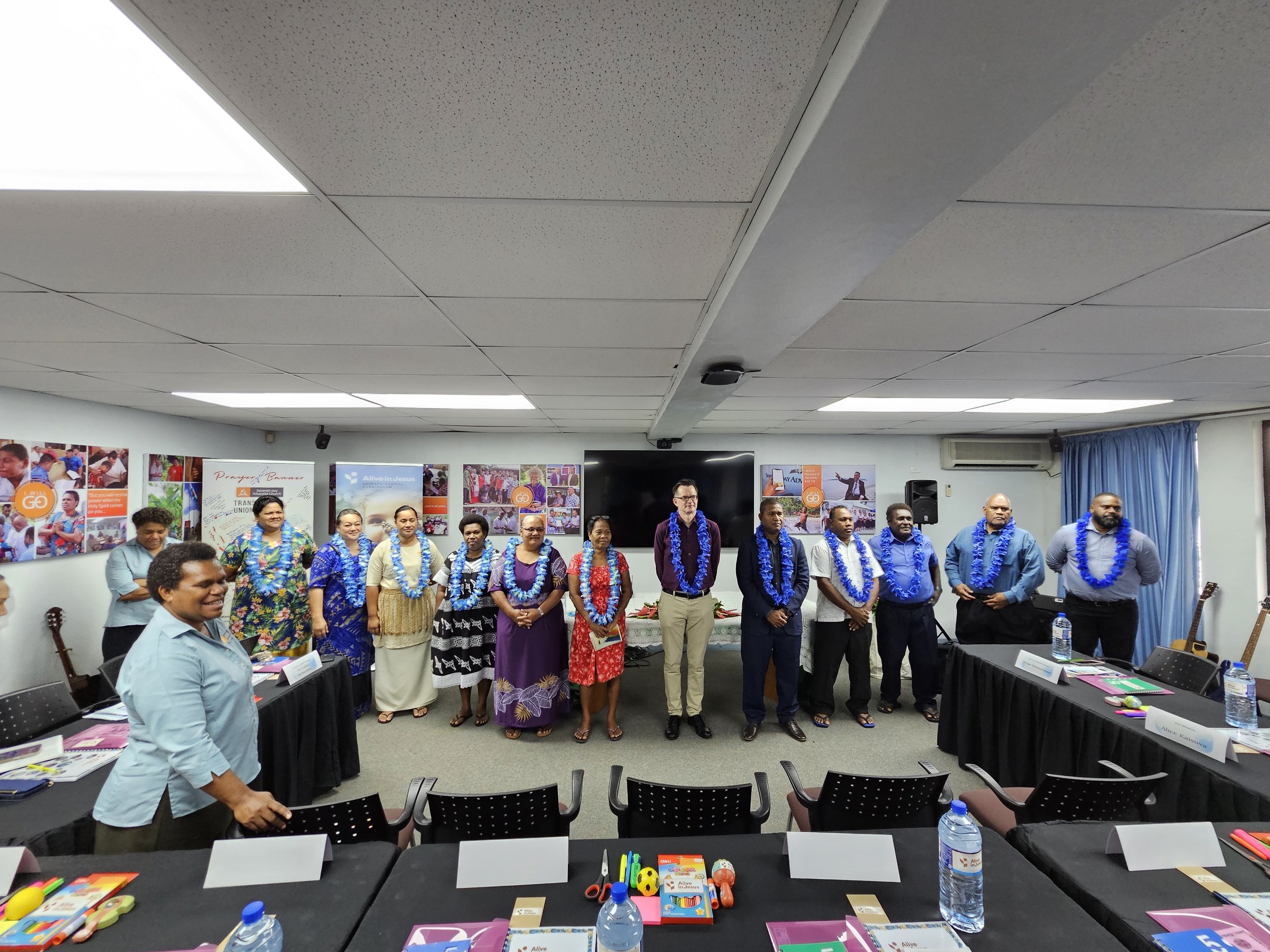
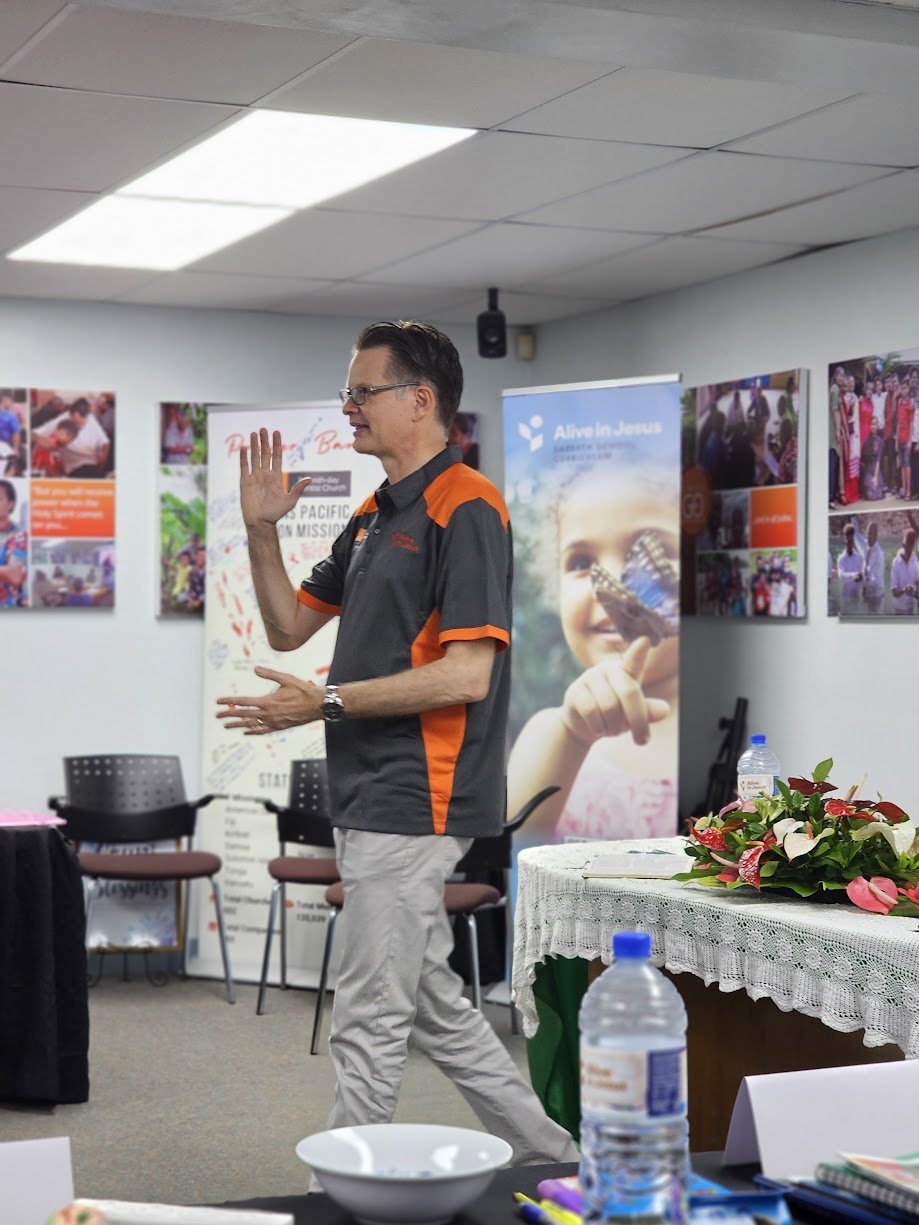
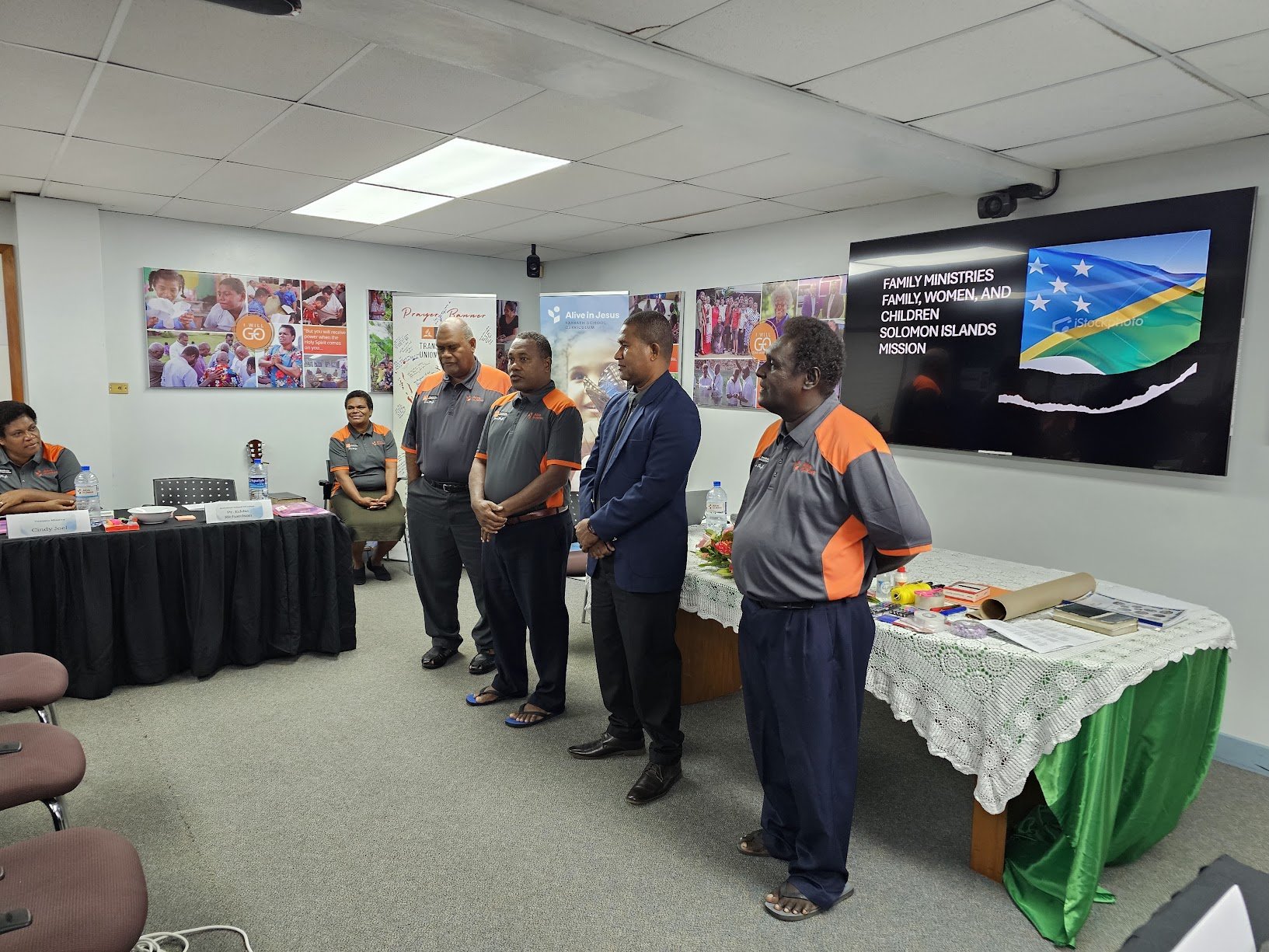
Organized by Minister Loleth Worwor, leader of the TPUM Women’s, Children’s, and Family Life Ministries department, the event gathered 11 leaders from across the TPUM missions, including the Solomon Islands, Fiji, Tonga, Samoa, American Samoa, Kiribati, and Vanuatu.
Dr. Sven Östring, Director of Ministry and Strategy at the South Pacific Division, served as the guest speaker. He emphasized the importance of making time for children and the power of storytelling in ministry.
“We must remember to prioritize our children, just as Jesus did,” said Dr. Östring. “Storytelling is a powerful tool in ministry, enabling us to convey complex spiritual truths in a relatable and engaging manner.”
A launch of the new Sabbath School curriculum was also done on Wednesday morning the 29th of May, which aims to be implemented throughout the TPUM. The curriculum is designed to nurture faith and impart a clear Biblical worldview over an 18-year educational scope.
Mr Taloga Pita, Education Director of the TPUM also shared with each participant “Abide Bible” from the Education Department, as a resource and tool for Bible study accompanying the new Sabbath School curriculum.
Pr. Maveni Kaufononga, President of the TPUM, expressed his support for the new curriculum. “We are delighted to introduce this new Sabbath School Curriculum to our union. The training conducted this week for our leaders is crucial, and we hope it will be faithfully implemented throughout the various missions in the TPUM. Thank you for participating in this significant event.”
The Alive in Jesus curriculum aims to guide young people in building a strong, enduring faith and a deep relationship with Jesus. It incorporates faith development stages and emphasizes the role of parents and caregivers in nurturing faith.

